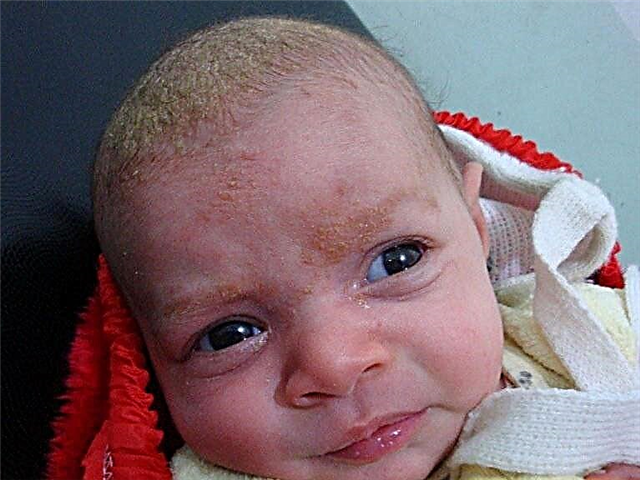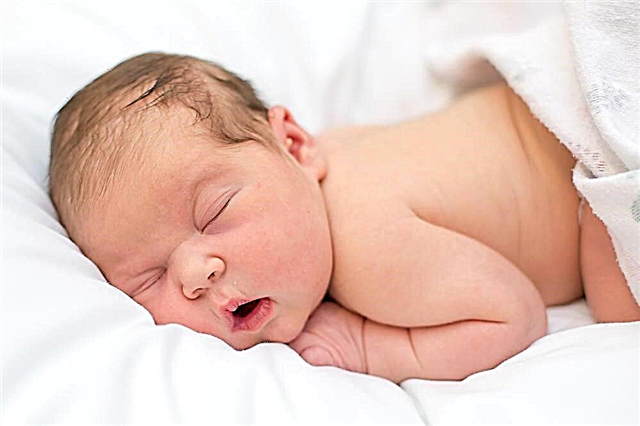What do mom's hands mean to a child?
For nine months in the mother's womb, the baby gets used to the tightness of the uterus, the beating of a woman's heart, uniform swaying, a certain body temperature, and smell. These conditions provide comfort and safety.
But at one point everything changes. The newborn finds himself in a completely unfamiliar and incomprehensible world to which he needs to adapt. And this must be done with the help of mother's love and tenderness.
Experts call the first 3 months the "fourth trimester". Such a comparison is quite appropriate, since the child, although no longer connected to the mother by the umbilical cord, is completely dependent on her physically and emotionally.
The closeness of the mother's body calms the baby, gives him a sense of security. It is my mother's hugs and her care that lead to the emergence of the so-called basic trust in the world around her, which is then transformed into an openness to everything new and a desire to explore space.
In addition, being in maternal arms has a beneficial effect on the physical development of the child.
 carrying on handles, breastfeeding provides close bodily contact, which allows you to actively stimulate the development of the cerebral cortex;
carrying on handles, breastfeeding provides close bodily contact, which allows you to actively stimulate the development of the cerebral cortex;- also mother's touch helps to stimulate blood circulation, improve the endocrine and nervous systems, and develop immunity;
- if you carry the child on the arms correctly, then you can contribute to the optimal formation of the musculoskeletal system, the spinal column and hip joints in children;
- the baby, being on the arms, takes part in the mother's activities, carefully observes her manipulations, which allows him to receive a large amount of information and develop intellectually.
Most often, at the age of six months, when the child begins to crawl, begins to actively learn about the world around him, gradually becomes more independent, the time spent in the mother's arms is significantly reduced.
How is excessive attachment formed?
So, frequent presence in the mother's arms contributes to the better development of the baby, the formation of a sense of security and self-confidence. However, at the same time, a habit of mother's hands may arise, if some conditions are not observed:
- Some parents strive to satisfy every need of a newborn, responding to literally every squeak. Holding your baby constantly while awake can inadvertently form a painful addiction.
- Until the age of four months, children often suffer from intestinal colic, accompanied by pain. One way to relieve the condition is to carry it in your arms and apply it to the mother's tummy. Such help often develops into a habit of being on mother's arms.
- The habit can develop during a painful condition in a baby. If he has fever, coughs, does not feel well due to cutting teeth, then the way out is motion sickness on the mother's hands.
The tame child is gradually growing up, the difficulties of the first months of life go away, however, the dependence on motion sickness and mother's hugs remains and only grows stronger. The baby is accustomed to this state of affairs and does not at all want to give up being in mother's arms. What to do in this case?

Good reasons for weaning
Before thinking about the question of how to wean an infant from the hands, you should understand whether it is worth doing it at this age at all. As we already said, you should wait for a certain period when the baby is ready to wean.
However, there are situations when the refusal of bodily contact is due to a number of completely objective factors:
- New mom is too tired of household chores. In such a situation, you should talk to your spouse or grandmothers, who can take over some of the responsibilities. If this cannot be implemented in practice, then finding the crumbs on hand should be limited. He needs a rested mother.
- Another significant reason is the forced exit of the mother to work before the end of the decree. In this case, the mother should be replaced by grandmothers and nannies. And the parents will compensate their love for the baby in their free time.
- Some moms worry too much about their children, preferring to hold them in their arms rather than let them on the floor or in the sandpit. In such a situation, it is worth starting work not with the child, but with the mother, since her anxiety is transmitted to the baby.
- A child who is already able to crawl or, moreover, walk, must independently explore the world, of course, under parental supervision. Therefore, you should let the grown up baby off your hands and send it to "conquer" the surrounding space.
Some mothers are sure that even a newborn child should not be in her arms. This is not quite the right position, since a baby born into the world needs bodily contact with its mother. Everything should be in moderation, so do not forget to kiss, iron and lift the crumb on the handles.
How to wean a child out of hand?
To wean a baby and an older child from parental hands, it is necessary to take into account the child's age. Compliance with the recommendations and advice of specialists will allow the mother to rest or do her homework.
0 to 3 months
The question of how to wean a newborn from the hands is incorrect, since, as already noted, during this period he is connected with his mother in physical and emotional terms. It is only important not to turn a natural need into a habit.
 in 1 month a child who is fed and dressed in a dry diaper can spend some time without a mother, for example, listening to calm music. If the baby begins to cry, do not immediately grab him in your arms. Sometimes shaking the rattle is enough to calm him down;
in 1 month a child who is fed and dressed in a dry diaper can spend some time without a mother, for example, listening to calm music. If the baby begins to cry, do not immediately grab him in your arms. Sometimes shaking the rattle is enough to calm him down;- at 2 months the time of active knowledge of the world increases compared to the age of 1 month, so it is not at all necessary to keep the baby constantly in your hands. You can simply lay the child on the bed next to you, stroke him on the back and stomach, and massage. That is, it is important to continue to maintain tactile interaction;
- at 3 months the basic recommendations remain the same: tactile interaction and regular massage. At this age, the child already begins to actively play with rattles and monitor the rotation of the mobile. These toys will allow you to distract your baby when he is upset or overly excited.
Experts advise to observe moderation in the matter of wearing it on your hands. It is necessary to raise the baby when he himself "asks" about it. However, one should not wait for the moment when the children's appeal develops into a hysterical attack. A timely parental response will ensure the correct development of the child and build trust in the world.
4 to 6 months
It is, of course, important for a 4-month-old baby to be close to his mother, but the constant desire to be in his arms is gradually disappearing. In addition, now he can follow his mother with his eyes, which is sometimes enough to feel safe.
 A 4 month old baby loves to play, so you can distract his attention with simple entertainment:
A 4 month old baby loves to play, so you can distract his attention with simple entertainment:
- if a child lying in bed cries, demands to be lifted in her arms, mother can calm the baby with the help of the game "Ku-ku". The parent hides behind the bed, then appears and cheerfully says "Ku-ku". Usually, the baby instantly joins in the fun and begins to smile;
- at 4 months old baby's favorite toys are rattles and mobiles. Noisy devices perfectly develop motor skills and coordination of movements, and a mobile helps to improve visual perception. In addition, they perfectly distract the baby from the desire to visit mother's hands.
It is important for a child even at 4 months to understand that his mother is there, and he is completely safe. Therefore, it is not necessary to take the baby on the handles, but you need to stroke it, kiss and talk to it constantly.
At 6 months
At the age of six months, the child no longer suffers from colic, so annoying at 3 and 4 months. However, now the baby is worried about cutting teeth. Because of the pain, the baby can cry, but usually mothers already understand when tears are caused by an objective reason, and when a baby's roar is just a manipulation. In the latter case, practical advice from experts will help:
 in order not to carry a weighty butuz on the handles, it is better for mom to lie down next to her, sing a song. This will allow the baby to feel the presence of any person;
in order not to carry a weighty butuz on the handles, it is better for mom to lie down next to her, sing a song. This will allow the baby to feel the presence of any person;- purchase a special developmental mat that can captivate a child who loves to play for a long time. Various rattles, pendants, cubes, mirrors - all this attracts little explorers;
- six-month-old babies can already sit and crawl. You can try crawling together after covering the floor with a soft blanket.
Never leave your child alone on a bed, sofa, or on an exercise mat. A kid exploring the world is able to crawl anywhere. You can keep your baby safe by placing it in the playpen.
At 7 - 8 months
Many experts advise it is during this period to wean the baby from the hands, if he still constantly uses his mother as a rocking chair and carrier. However, it is necessary to act consistently and extremely carefully so as not to injure the baby.
Take it with you when you cook dinner. Naturally, the child needs to be protected from the many dangers that await him in the kitchen. For example, you can put your baby on a highchair or in a playpen filled with toys. In the process of cooking, they talk with the little "companion", talking about cooking.
From 1 year
The first anniversary usually marks the relative independence of the child. And most often, it is possible to wean oneself from hands much earlier, but sometimes it happens that the baby continues to ask for pens, and the mother is forced to constantly rock the well-fed butuz.
To wean a child from a habit, you need to be distracted with the help of various play devices: a children's piano, a toy car, a tolokar, blocks and other toys. The most important thing is to remember that a baby is not able to play alone for a long time even at two years old, so you need to be with him during the game.
Useful psychological techniques will help to cope with the habit:
 try to distract your child with a bright toy every time he starts pulling pens towards you;
try to distract your child with a bright toy every time he starts pulling pens towards you;- there is no need to raise the baby on demand. It is better to sit down next to, hug, talk, pat on the head - that is, to realize the need for body contact;
- try to involve other household members in the educational process. But it is important to explain to them that you cannot lift the child whenever he cries;
- if the child fell, bumped, you need to sympathize with him, taking not on the arms, but on the knees. Mom's hugs are sometimes the best medicine.
The second year of life is the time when babies try to manipulate adults to get their way. Therefore, it is important to distinguish when the child really needs your help and support, and when it is possible to solve the problem with "little blood".
When shouldn't wean you off your hands?
Most often, tactile interaction with a child is shortened when he turns 7 to 8 months. At this age, he is already distinguished by independence: crawls, sits, eats complementary foods.
However, the baby does not always voluntarily agree with such a decision. In this case, you do not need to insist too much in order to avoid stress or psychological trauma. Some children give up their mother's hands only after one year of age.
Haste is not recommended in cases where the child:
 lags behind in development;
lags behind in development;- suffered an injury during childbirth;
- weak or premature.
If you can't wean yourself off of pens or you temporarily decide to abandon this idea, use a kangaroo carrier that can be used from birth to one year of age. However, a newborn will have to select a special insert, since it is strictly not recommended to keep it upright.
To move the newborn, it is better to use a special sling: a may-sling, a carrier with rings or a scarf carrier. They all represent a kind of pocket, which is formed by wrapping a piece of tissue around the mother's body.
These types of slings allow very young children to sit in a horizontal position on their mother's stomach. But half-year-old babies can already be placed vertically and behind the parent's back.
In addition, you should think about why the child throws tantrums when weaning from mom's hands. It is likely that the baby sees constant family scandals or feels some detachment from the mother. Remember to refrain from weaning children from parental hugs up to 7 months of age.
How to wean a baby to sleep in his arms?
If a mother wanders around the room all night with a baby in her arms who does not want to sleep in a crib, something needs to be done as quickly as possible. Usually, a six-month-old child is able to sleep almost all night without waking up.
The popular teledoctor Komarovsky is convinced that if a child falls asleep exclusively in his arms, the parents are to blame, who incorrectly organized the daytime regimen. When the routine is established, the problem usually disappears on its own.
How to wean a baby out of hand at night? Some recommendations from experts should be followed:
 It is better not to put the child to bed for a while during the day or significantly reduce the afternoon nap. Naturally, during this period it is necessary to keep the baby occupied with something, at the same time making sure that he is not overexcited.
It is better not to put the child to bed for a while during the day or significantly reduce the afternoon nap. Naturally, during this period it is necessary to keep the baby occupied with something, at the same time making sure that he is not overexcited.- Instead of motion sickness and holding in your arms, you can try reading fairy tales or singing lullabies. In this case, it is imperative to stroke the baby in order to compensate for the bodily contact to which he is already accustomed.
- Place a stuffed animal next to your baby in the crib. A plush bunny will brighten up falling asleep and help to avoid nightmares and fears.
- Even if it seems to you that the child is too nervous, you do not need to give him sedatives. It is impossible to predict the baby's reaction to any sedative, including valerian.
If you can't get your baby to bed without motion sickness, or if you have other symptoms of excessive agitation, contact your pediatrician. You may have to undergo examination and subsequent treatment.
Brief summary
So, let's summarize our conversation, formulating the main points:
- a newborn child is in vital need of a mother's embrace;
- the habit of being in your arms is formed in the first months of life if the baby is sick or the mother feels increased anxiety;
- addiction does not mean that the mother needs to abandon everything in order to carry the baby in her arms throughout the day;
- the optimal age for the beginning of weaning is 7 - 8 months, but you should still focus on the child himself, his individual characteristics;
- the duration of weaning and the result itself will depend on the character of the baby, the strength of his habit and mother's persistence.
If you are trying to wean your child from pens, then it is worth choosing methods that will allow you to relieve the baby of the habit as painlessly and without any problems as possible.The most important thing is to remember that babies grow very quickly, so perhaps you will very soon recall with nostalgia the child's hugs and the child's desire to be with you.

 carrying on handles, breastfeeding provides close bodily contact, which allows you to actively stimulate the development of the cerebral cortex;
carrying on handles, breastfeeding provides close bodily contact, which allows you to actively stimulate the development of the cerebral cortex; in 1 month a child who is fed and dressed in a dry diaper can spend some time without a mother, for example, listening to calm music. If the baby begins to cry, do not immediately grab him in your arms. Sometimes shaking the rattle is enough to calm him down;
in 1 month a child who is fed and dressed in a dry diaper can spend some time without a mother, for example, listening to calm music. If the baby begins to cry, do not immediately grab him in your arms. Sometimes shaking the rattle is enough to calm him down; in order not to carry a weighty butuz on the handles, it is better for mom to lie down next to her, sing a song. This will allow the baby to feel the presence of any person;
in order not to carry a weighty butuz on the handles, it is better for mom to lie down next to her, sing a song. This will allow the baby to feel the presence of any person; try to distract your child with a bright toy every time he starts pulling pens towards you;
try to distract your child with a bright toy every time he starts pulling pens towards you; lags behind in development;
lags behind in development; It is better not to put the child to bed for a while during the day or significantly reduce the afternoon nap. Naturally, during this period it is necessary to keep the baby occupied with something, at the same time making sure that he is not overexcited.
It is better not to put the child to bed for a while during the day or significantly reduce the afternoon nap. Naturally, during this period it is necessary to keep the baby occupied with something, at the same time making sure that he is not overexcited.

